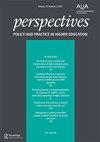Hans-Georg Gadamer’s philosophy of understanding and its implications for a model of hermeneutical translation competence
Q2 Social Sciences
Perspectives: Policy and Practice in Higher Education
Pub Date : 2022-11-23
DOI:10.1080/0907676X.2022.2145909
引用次数: 1
Abstract
ABSTRACT In the last decades, the notion of translation competence, as well as a translator’s competence, has become increasingly significant as the number of translation courses, both at undergraduate and postgraduate levels, has grown exponentially across the globe. The expansion of such courses in many countries around the world necessitates developing theoretical models of translation competence which could serve as starting points for rethinking the existing frameworks within the field of translation pedagogy. The main objective of this paper is to discuss a novel hermeneutical model of translation competence as based on the main tenet of Hans-Georg Gadamer’s philosophy of understanding, namely, the hermeneutical circle. This paper is embedded within the domain of translational hermeneutics, a subfield of translation studies which has yet not been given proper attention among translation scholars. The first part of this article offers a concise state of the art of the notion translation competence. The second section of this paper provides a brief overview of Hans-Georg Gadamer’s philosophical hermeneutics, with particular emphasis on the philosopher’s views on the nature of the hermeneutical circle. Capitalizing on these notions, an original hermeneutical model of translation competence is presented. The paper concludes with general remarks pertaining to avenues for future research into hermeneutical translation competence.伽达默尔的理解哲学及其对解释学翻译能力模型的启示
摘要在过去的几十年里,随着全球本科生和研究生水平的翻译课程数量呈指数级增长,翻译能力和译者能力的概念变得越来越重要。随着这类课程在世界许多国家的推广,需要建立翻译能力的理论模型,这些模型可以作为重新思考翻译教育学领域现有框架的起点。本文的主要目的是在伽达默尔理解哲学的主要宗旨,即解释学圈的基础上,探讨一种新的翻译能力解释学模型。翻译解释学是翻译研究的一个分支领域,但在翻译学者中尚未得到应有的重视。本文第一部分简要介绍了翻译能力这一概念的研究现状。本文的第二部分对伽达默尔的哲学解释学作了简要的概述,特别强调了伽达默尔对解释学圈本质的看法。利用这些概念,提出了一个翻译能力的解释学模型。最后,本文对解释学翻译能力的未来研究进行了综述。
本文章由计算机程序翻译,如有差异,请以英文原文为准。
求助全文
约1分钟内获得全文
求助全文
来源期刊

Perspectives: Policy and Practice in Higher Education
Social Sciences-Education
CiteScore
2.50
自引率
0.00%
发文量
24
 求助内容:
求助内容: 应助结果提醒方式:
应助结果提醒方式:


